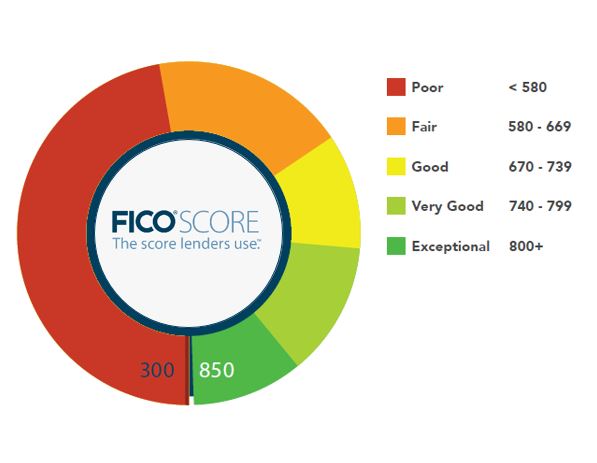Credit scores are rising, which bodes well for mortgage seekers desiring the lowest rates. The average FICO credit score, which is a widely used measure of a person’s creditworthiness, stands at 706, a record high, according to newly released FICO data.
For comparison, in 2009 at the end of the Great Recession, the average FICO score was 686. Scores averaged 690 in 2006 during the housing bubble.
A FICO score in the range of 670 to 739 is considered “good,” and between 740 to 799 is “very good,” according to FICO.
“Significant improvement in the overall population’s credit profile has been the key driver of the 20-point increase in the national average FICO score over the past decade,” writes Ethan Dornhelm, vice president of scores and predictive analytics at FICO, in a recent blog post. “These improvements are reflective of improving consumer financial health, as would be expected during a period of economic expansion.”
A stable and growing economy with low unemployment, higher wages, and greater financial health is behind the increase in FICO scores, he notes. But Dornhelm also notes that an increase in consumer awareness of FICO scores has also been leading to the higher numbers lately.
Also, consumers who had negative information on their credit profiles from the Great Recession have since seen them removed, allowing their scores to rise. “Consumers who suffered financial misfortune during the Great Recession have over the past few years had the associated missed payments from that time period purged from their credit file,” he notes.
One of the big factors contributing to higher scores is the growth of on-time mortgage payments, Dornhelm notes. In April, just 2.8% of consumers were 90 days or more late on a mortgage payment within the last two years, compared to 7.2% in 2009.
Millennials, who are between the ages of 23 and 38, have had less time to build up a credit history so they tend to have lower credit scores than older adults. The average FICO score for a millennial in the fourth quarter of 2018 was 665 compared to baby boomers’ 732 and the silent generation’s 756, according to data from Experian.
Source: “One Reason FICO Scores Are Rising (That Has Nothing to Do With Jobs or the Economy),” MarketWatch (Sept. 15, 2019) and “Average U.S. FICO Score Ticks Up to 706,” FICO.com (Sept. 10, 2019)













